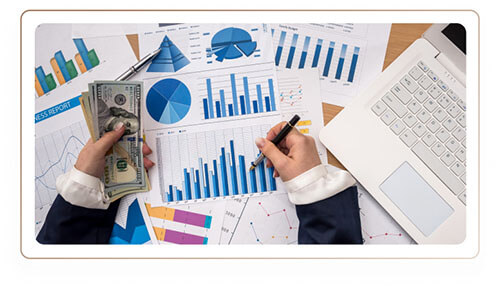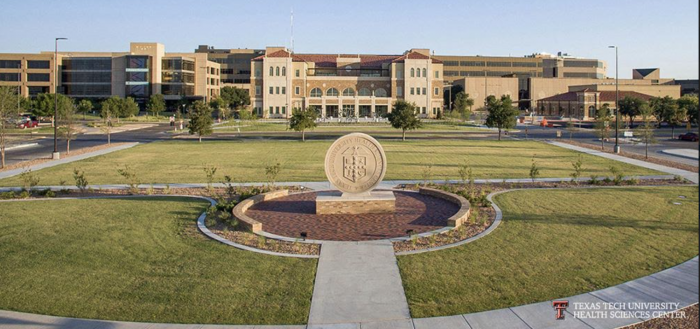Do you have skills in economic development, economic analysis, or financial forecasting that you’re eager to put to meaningful use?
If so, consider exploring a career trajectory where your passion for economics can truly shine.
KEY TAKEAWAY
- Each level of government offers distinct roles and responsibilities tailored to address the economic needs and priorities of their jurisdictions.
- In each of these areas, there are a multitude of key roles that exist.
- There are also many benefits available to economists working in the public sector.
- ⇀ Exploring the Diversity: County, State, and Federal Opportunities
- ⇀ Exploring the Sectors: What Types of Options Are Available to Me?
- ⇀ Exploring the Roles: What Types of Jobs Can I Apply For?
- ⇀ Exploring the Benefits: Advantages of Working in Government Economics
- ⇀ Are You Ready to Apply for an Economist Job with the Government? Then We Are Ready for You
In the complex and exciting world of local, state, and federal governance, economics serves as a vital thread that weaves together policies, decisions, and outcomes.
At the nexus of fiscal responsibility and societal well-being, the principles of economics guide governments in shaping effective strategies, allocating resources, and fostering sustainable development.
Whether it’s crafting budgets, formulating tax policies, or analyzing market trends, economics plays a pivotal role in driving the engine of public administration.
From local municipalities to federal agencies, every level of government is in need of economic expertise to address pressing issues and pursue strategic objectives.
If a career working in your local, state, or federal government is the type of employment that appeals to you, then look no further than the job opportunities that are listed on this website.
There is certainly a vacancy announcement that is going to be right for you.
Exploring the Diversity: County, State, and Federal Opportunities

Government economics jobs encompass a broad spectrum of opportunities at various levels of governance, spanning from local county administrations to state agencies and federal departments.
Each level of government offers distinct roles and responsibilities tailored to address the economic needs and priorities of their respective jurisdictions.
County Opportunities: At the county level, economic roles often focus on community development, local budgeting, and economic revitalization efforts.
County governments may employ economists, planners, and analysts to assess the economic health of communities, administer grant programs, and facilitate economic growth initiatives at the grassroots level.
State Opportunities: State governments boast various economic positions across diverse sectors, ranging from economic policy analysis and planning to revenue forecasting and taxation.
State economic agencies play a crucial role in formulating and implementing policies to stimulate economic development, attract investment, and promote job creation within their borders.
Federal Opportunities: The federal government offers expansive opportunities for economists and economic analysts to shape national economic policy, conduct research, and oversee regulatory frameworks.
Federal agencies such as the Department of the Treasury, the Bureau of Labor Statistics, and the Congressional Budget Office employ economists to analyze economic trends, assess the impact of legislative proposals, and advise policymakers on matters of economic significance.
Discover available jobs
Exploring the Sectors: What Types of Options Are Available to Me?
Government economics jobs encompass a diverse array of sectors, each with its unique focus and objectives.
Whether you’re interested in shaping public policy, conducting strategic planning, performing data analysis, or engaging in cutting-edge research, there’s a government economics role suited to your interests and skills.

Public Policy: Government economists play a pivotal role in informing and shaping public policy decisions across a wide range of areas, including fiscal policy, healthcare, education, and environmental regulation.
By conducting economic impact assessments, cost-benefit analyses, and policy evaluations, economists provide policymakers with valuable insights to guide decision-making processes and optimize resource allocation.
Planning: Economic planners work collaboratively with government agencies and stakeholders to develop strategic plans and initiatives aimed at fostering economic growth, infrastructure development, and regional prosperity.
Through demographic analysis, market research, and spatial planning, economic planners identify investment opportunities, streamline regulatory processes, and enhance the overall competitiveness of communities all over the country.
Analysis: Economic analysts leverage data analysis techniques and econometric models to evaluate economic trends, forecast future outcomes, and assess the efficacy of policy interventions.
Whether it’s analyzing labor market dynamics, monitoring inflationary pressures, or evaluating the impact of trade policies, economic analysts play a critical role in providing evidence-based insights to support informed decision-making within government agencies.
Research: Government economists engaged in research that will undertake empirical studies and policy analysis to advance our understanding of complex economic phenomena. Researchers are also needed to inform evidence-based policymaking at all levels.
From conducting economic impact studies to exploring the drivers of regional economic disparities, research economists contribute valuable knowledge and expertise to address pressing economic challenges and inform long-term policy solutions.
Exploring the Roles: What Types of Jobs Can I Apply For?

Within the realm of government economics, a multitude of key roles exist, each offering unique opportunities to contribute to economic policymaking, analysis, and research.
While some of these positions will require a master’s degree, many will require only a bachelor’s degree to apply.
Some even offer an internship program for those who have not completed their full range of education but want to gain experience in the field.
Let’s look at some of the most common positions that are often available for those interested in the field of economics within a local, state, or national governmental entity.
Economist: Economists apply economic theory and quantitative methods to analyze economic phenomena, forecast trends, and evaluate policy alternatives.
They conduct research, produce reports, and provide economic insights to inform policy decisions and promote economic stability and growth.
Policy Analyst: Policy analysts assess the impact of proposed policies and regulations on economic outcomes, social welfare, and government finances.
They conduct cost-benefit analyses, assess policy effectiveness, and provide recommendations to policymakers to address pressing societal challenges and achieve policy objectives.
Budget Analyst: Budget analysts play a critical role in managing public finances, preparing budgets, and allocating resources to government programs and initiatives.
They analyze financial data, assess program performance, and provide fiscal recommendations to ensure the effective and efficient use of taxpayer dollars.
Researcher: Economic researchers conduct empirical studies and policy analysis to generate new insights into economic phenomena, inform evidence-based policymaking, and advance our understanding of complex economic issues.
They publish research papers, present findings to policymakers and stakeholders, and contribute to the development of innovative policy solutions.
Planning Specialist: Planning specialists collaborate with government agencies, community stakeholders, and policymakers to develop strategic plans and initiatives aimed at promoting economic development, land use planning, and sustainable growth.
They conduct research, analyze demographic trends, and facilitate community engagement to support informed decision-making and long-term planning efforts.
Exploring the Benefits: Advantages of Working in Government Economics

Not only are there many different types of economic-centered positions available at each government agency, but there are also a multitude of benefits available to economists working in the public sector.
Government Jobs Allow You to Contribute to Public Policy and Decision-Making
Government economists directly shape public policy, addressing societal challenges and promoting economic growth through informed decision-making.
Government Jobs Offer Job Security, Retirement Plans, and Healthcare
Government economics roles offer stability, competitive benefits, and financial security, providing peace of mind for employees.
Government Jobs Offer Opportunities for Growth and Advancement
Government agencies prioritize professional development, offering diverse roles and advancement opportunities for career growth.
Government Jobs Offer Exposure to Diverse Economic Issues and Challenges
Government economists engage with various economic issues, fostering analytical skills and collaboration across disciplines.
Are You Ready to Apply for an Economist Job with the Government? Then We Are Ready for You

If the idea of working for the government in an exciting and innovative economics role sounds like the career you are looking for, don’t hesitate to explore the job listings available on our government job search website. For those with a passion for social welfare and community development, government social work jobs offer opportunities to apply economic principles and analysis to address societal challenges, promote economic empowerment, and ensure equitable access to resources.
New opportunities are waiting for you. Find yours today.




